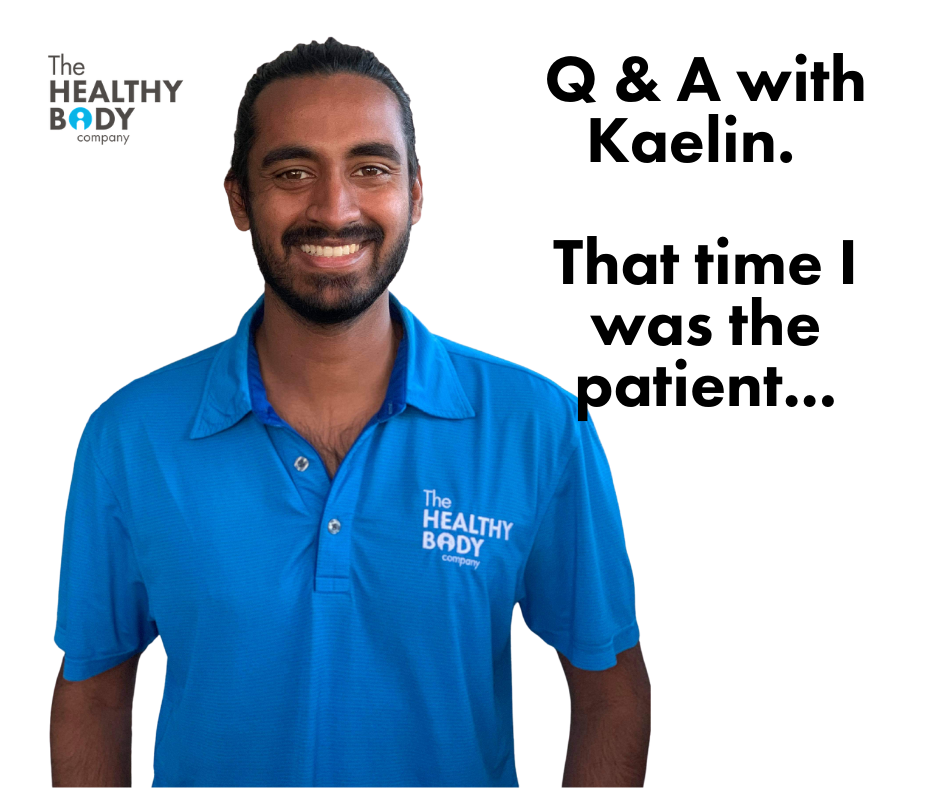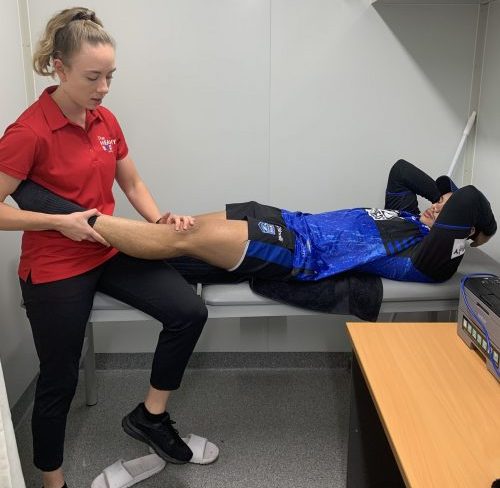
As a you may know, one of our Penrith physios has recently been recovering from a broken collarbone (or clavicle) . Kaelin Moodley was forced out of work for over 6 weeks. He very generously agreed to sit down with us to share his experience from the other side of the “table”.
Whilst playing Oz Tag I landed awkwardly on my shoulder when diving to score a try. I felt the snap straight away and walked myself off the field. I am currently rethinking my Oz Tag career 😁.
Depending on the extent of injury, collarbone fractures may need surgery or can heal with conservative management.
Surgery is necessary when:
Thankfully in my case the fracture didn’t meet any of those criteria.

Weeks in a sling can pass very slowly when you are used to being physical and active.
For my fracture, the management was conservative and followed a fairly standard route
I also had my amazing colleagues at The Healthy Body Company in Penrith and Jordan Springs helping me out. I want to give them a big shout out.

“Physiotherapy is a physical job. In this image Alicia is working with a rugby league player. For me, this was the challenge, I needed to be fit enough to manage these sorts of situations to be able to come back to my job safely”
Being in a sling is hard! Learning how to do things with one hand is frustrating!
It’s not a great feeling to lose your independence or having to stop doing the things you enjoy. For me, the forced downtime was really difficult. I am a people person, which is why I love being a physio. I really missed seeing my team and patients every day.
What I had to remind myself was that healing takes time and unfortunately I found that time in these sorts of circumstances goes slower than we would like.
Sometimes you may be unsure if you are progressing well in your recovery. As I said, time goes slow so day by day might not feel like great progress is being made, however looking at longer time intervals, ie week to week, I could see the improvement.
If you are feeling like you are not making progress, don’t be scared to let your physio know this. They can help show you your progress with objective tests (like how your range of movement is improving, or your strength gains). You physio is ideally positioned to help you work out why your progress may be slower than anticipated and put together a plan to get you back to full function.
As always, if you have any questions, don’t hesitate to drop a line!